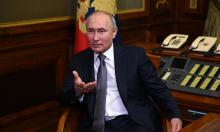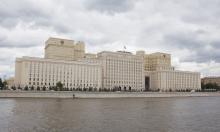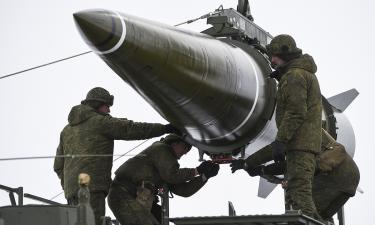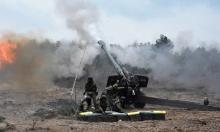Russia says EU's statements on Georgian conflict biased
Russia on Tuesday criticized the European Union for threatening to postpone talks on a new partnership deal over the war in Georgia, and said the EU's statements on the Georgian conflict were biased.
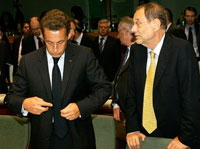
The EU decision, widely seen as a slap-on-the-wrist for Moscow, was made at a summit meeting in Brussels on Monday.
EU officials said unless Russian troops pull back from positions in Georgia, talks on the wide-ranging political and economic agreement would be put off.
"Naturally, we cannot agree with a number of biased statements regarding Russia in the final declaration of the summit, including the assertion that our reaction to the Georgian aggression was disproportionate," the Russian Foreign Ministry said in a statement.
Britain and Eastern European nations at the summit held out for a tougher line. But Europe's dependence on Russian oil and natural gas deterred the EU from stronger sanctions.
"The main thing, however, is that they are in the minority and the majority of EU countries have manifested a responsible approach and confirmed their intention to continue the partnership with Russia," the ministry said.
Vladimir Chizhov, Russia's envoy to the European Union, suggested he was not surprised that the European Union declined to impose sanctions on Russia.
"We are too interdependent," he told reporters in Moscow. "Russia and the European Union are bound by destiny to be close partners."
He also denied allegations by EU members that Russia has failed to live up to the terms of the cease-fire agreed to between Russian President Dmitry Medvedev and French President Nicolas Sarkozy.
Sarkozy said he plans to travel to Moscow on Monday for talks with the Russian leadership.
Asked why Russian troops control the Georgian Black Sea port of Poti, Chizhov said they do not. Instead, he said, a limited number of peacekeeping forces are there to track shipments into the port.
"This is only one checkpoint, to monitor the possible use of the port to transfer arms," he said.
Regarding the postponement of work on a security agreement between the EU and Russia, Chizhov said the EU had "internal difficulties" among its members that it needed to sort out before the deal could be negotiated.
"We were patient enough and remain patient," he said.
Russia's NATO envoy, meanwhile, accused the United States of pushing Poland and the ex-Soviet Baltic states to demand tougher sanctions against Russia.
"It is clear who the losing side is: the policy pursued by the Polish president and his Baltic co-thinkers," Dmitry Rogozin was quoted by Interfax as saying.
They acted as "the advocates of Washington's line to undermine pan-European cooperation," he was quoted as saying.
Subscribe to Pravda.Ru Telegram channel, Facebook, RSS!
